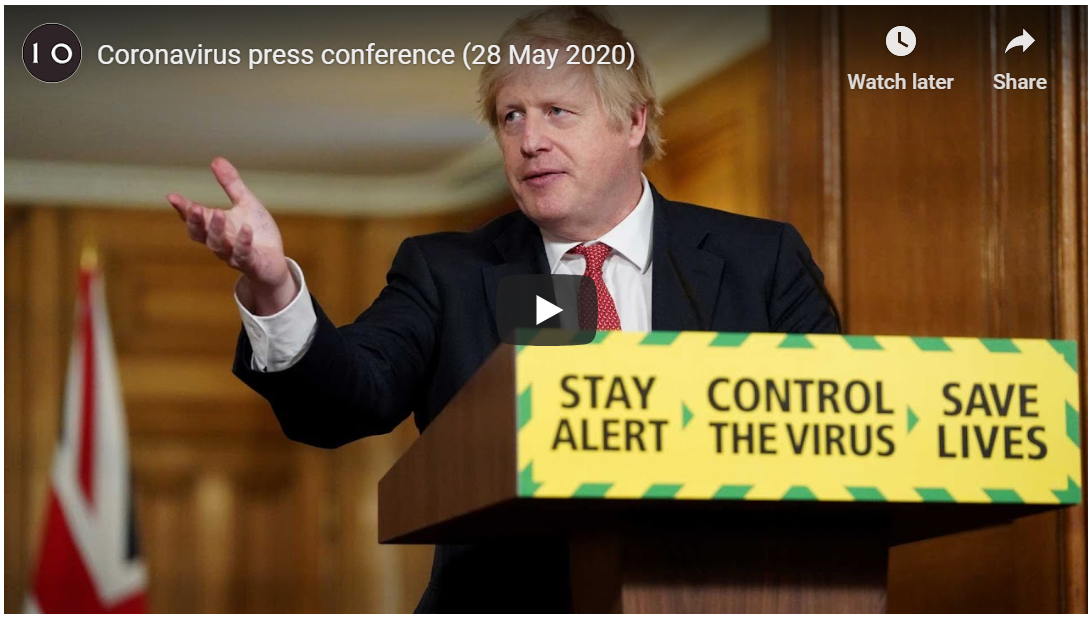I don’t think it is possible to determine statistically whether aid makes a lot of difference to how quickly a country develops. But there is a very good case for aid on different grounds: that it enables people to live better lives in the meantime.
Though the effects of aid on development are uncertain, there is a huge amount that industrialised countries can do – or not do – which affects how quickly countries develop. The policies of rich countries on trade, investment, migration, the environment, security and technology can make a huge impact on how quickly poor countries are able to develop.
Yet we tend to judge industrialized countries too much according to how much aid they give, and too little to how they behave in all these other ways.
The Center for Global Development provides an essential service by ranking the rich each year so we can see how we are doing. They use a series of quantitative measures on all these dimensions to create a composite picture of how a country’s policies affect development. The 2010 results are now in.
For people in the UK who feel smug about the UK’s approach to development, the Commitment to Development Index makes pretty sobering reading. The UK is in 16th place, out of 22 countries in the index.
The UK has fallen ten places since 2005, when it was in joint fifth place, after only Denmark, Sweden, Netherlands and Norway.
The UK is one of only three countries to have got worse rather than better since the index began in 2003. (The other two are Denmark – which started at the very top, and Switzerland.) And this isn’t a point about the change of government: Britain was 16th last year too.
Given that the UK has a relatively generous and effective aid programme, why does it come so far down the league of overall impact on development?
In short: arms exports.
The Commitment to Development Index uses three measures of a country’s security policy. It tallies the financial and personnel contributions to internationally mandated peacekeeping operations and humanitarian interventions. It rewards countries that base naval fleets where they can secure sea lanes vital to international trade. And it penalizes arms exports to undemocratic nations, on the grounds that putting weapons in the hands of despots can increase repression at home and the temptation to launch military adventures abroad.
The UK is by far the worst of the the 22 nations in the index on selling arms to poor and undemocratic governments. UK arms exports, weighted for undemocratic and unaccountable states, are four times worse, as a share of GDP, than the next worst arms exporter, the United States.
As well as being stand-out bottom of the pack on arms exports, the UK does badly on migration policy, because it takes too few unskilled immigrants and students for its size; and technology policy both because Government R&D spending is unduly focused on defence, and because the UK tends to pursue intellectual property rights policies that are not in the interests of poor countries, such as allowing patents on plant varieties, and pushing to incorporate into bilateral free trade agreements “TRIPS-Plus” measures that restrict the flow of innovations to developing countries.
Critics of aid often argue that we should focus more on helping countries to develop, rather than what they call ”handouts’ to poor countries. In that context, they usually mention the need for more open trade with developing countries. That is certainly important. The Commitment to Development Index suggests that they should also be advocating changes in UK policy to: reduce arms sales to undemocratic countries, accept more unskilled immigrants, increase the number of foreign students, remove patents on plant varieties and stop arguing for TRIPS-plus.
The UK gets credit for its environmental policies, mainly because it has done relatively well on limiting carbon emissions and because of high petrol taxes. Global warming has a disproportionately negative impact on developing countries, so these measures have an important impact on developing countries.
Many British people are proud of the UK’s commitment to reducing poverty in developing nations, and Britain’s model of an independent development agency within Government led by a separate Cabinet Minister is widely admired. But is it working? Judging by the scores in the 2010 Commitment to Development Index, the UK is doing a better job at securing and spending a rising aid budget than it is at getting the rest of government to pursue development-friendly policies.





10 Comments
Blaise · November 11, 2010 at 7:42 am
The work of the CGD is interesting but I have two remarks:
-how the US can be ranked 1st in security. I understand they’re involved in a lot of peace keeping operations, but they’e started 2 wars in the past 8 years. The iraki war was not even endorsed by the UN.
– France gets a good score on environment thanks to their nuclear power plant program. Well, it doesn’t produce co2 but radioactive material for thousand of years.
I know no index can be perfect but choices made to build may change a lot of things.
Owen replies: I think the US does well on security because of the troop surge in Afghanistan. Because (unlike in Iraq) this has a mandate from the UN, it counts towards their international peacekeeping score.
France does well on environment because of low and declining carbon emissions per head, which might be partly because of the use of nuclear energy, as you say. They also have relatively high petrol prices.
Matthew · November 11, 2010 at 9:11 am
Interesting article and think it raises important issues. There is so much focus on aid in helping the poorest people at the expense of things like trade.
In terms of UK immigration, this is something that will only get worse. The perception that there are too many “of them” coming to the UK is only likely to grow in the context of austerity and people losing jobs. In my experience people at the lower end of the job market are more concerned with low skilled immigration – for obvious reasons – but the government is trying to curb immigration with restrictions on highly skilled people too…It’s a bit of a mess really!
Jiesheng · November 11, 2010 at 10:12 am
I don’t believe this ranking. US Development policy has hardly been about development; it has been about security failed states into a neo-liberal globalisation paradigm and ensure that market fundamentalism remains as the dominant sphere in development despite all the empirical failures. I acknowledge DFID is not always the rosy creme de le creme of development but the US is far more bureaucratic, disorganised and simple bent of a one size fits all approach in terms of development.
Owen replies – the advantage of a numerical index like this is that it, if it tells you something you didn’t expect, it forces you to confront explicitly why you disagree. What is it about the index (which puts the US ahead of the UK) that you don’t agree with? Is it failing to take account of something important? Giving too much weight to something you think is not important? It isn’t very interesting to say you “don’t believe” the ranking – the ranking does what it says on the tin. If you don’t think this is a good measure of the commitment to development, it is incumbent on you to explain what a better measure would include, exclude, or weight differently.
Rosalind Eyben · November 11, 2010 at 11:02 am
Thanks for publicising this Owen. Irrespective of comments by others about the validity of the overall rankings, that “the UK is by far the worst of the the 22 nations in the index on selling arms to poor and undemocratic governments” is truly shocking.
Jiesheng · November 11, 2010 at 11:23 am
“Undemocratic” has to be defined. Western countries define undemocratic in loose terms–How about arms sales to say one party dominant countries that care about development?
Owen replies: Come on Jisheng, please do a little bit of thinking and maybe use Google a little before you comment here. The index does define undemocratic – they have to come up with a quantitative index, after all. Arms exports in the index are weighted according to three things: (a) how democratic the recipient is, according to the subcomponent of the Kaufmann-Kraay index on “voice and accountability”; (b) how heavily recipients spend on the military in general; and (c) the recipient’s GDP/capita. If you’ve got something to say about the use of the Kaufmann-Kray index on voice and accountability as a measure of “undemocratic”, we’ll all be glad to hear it, but please don’t just fire from the hip.
Don Stoll · November 11, 2010 at 5:28 pm
Fascinating stuff! As an American, I can’t help noticing the UK’s faults as laissez faire arms exporter, military spendthrift, and immigration xenophobe—faults which parallel those of my own country. Do you have an opinion about the extent to which desire for strong alliance with the United States drives UK policy in these areas?
Doug Hadden · November 11, 2010 at 6:13 pm
Owen,
As usual, a very thoughtful and analytical piece. It does help us to confront the outcomes of aid rather than the inputs. This is a general problem that requires a focus on measurement and benchmarks even when these are subject to fuzzy thinking.
With all of the talk about capital controls and currency wars it seems to me that the impact of trade policy ought to get a higher weight in this analysis. I agree with Matthew on this. The EU Common Agricultural Policy and many US subsidies (like on cotton)have a major impact to reduce the effectiveness of aid. Trade is often seen as a zero-sum game, yet, for all the outcry on primarily low-value outsourcing (i.e. Obama going to India to see where American jobs are), developed countries seem to be very clever in ensuring that high value trade (where they have an advantage), such as services, is less subject to trade restrictions.
Skill migration to developed countries is an economic driver despite the anti-immigration rhetoric in many countries. It will be curious to see whether the “new normal” will make developing countries more attractive for growth where ex-pats return to home countries with additional skills.
The other troubling undercurrent in bi-lateral aid is the tying of aid with foreign policy objectives. There has been a lot of talk about this idea in the United States. This may end the tide of untying aid and reduce aid effectiveness.
David Roodman · November 12, 2010 at 12:04 am
As the manager of the Commitment to Development Index, I think most of these comments are very good, and Owen’s replies excellent. The CDI embodies lots of choices about what to reward and penalize, and every single one of them is seriously debatable. To take one example, the CDI rewards the U.S. presence in Afghanistan, because that was endorsed by the U.N. Security Council in late 2001. It is *neutral* with respect to the U.S. presence in Iraq, simply leaving it out of the CDI. We made the best call we could in the face of a complex problem: what formal criteria should we use in deciding which military operations to penalize or reward? Try coming up with an alternate rule that can be applied to the last 15 years of history for 22 countries (and if you have a good idea, let me know!). What matters most to me is not the results but the messages. In this case, the message from the CDI as it stands is one I am comfortable with: multilateral military action is generally better than unilateral.
One can also debate whether the U.K.’s multi-billion-dollar weapons sales to Saudi Arabia should weigh heavily on it. On the one hand, the U.K. government has estimated that the risk of harm to development is minor. On the other hand, the sales strengthen a heavy-spending, dictatorial government in a dangerous neighborhood, abetting a regional arms race. As Owen explained, three considerations affect the arms penalty. This structure is meant to reflect the idea that arms sales are not automatically and equally bad. How poor a nation is, how accountable its government, and whether it is a light or heavy military spender (some military spending is reasonable for self-defense), all ought to figure. That too seems like a good signal—but if you can come up with a better formula, let us know!
Blaise · November 12, 2010 at 2:03 am
Hi Owen,
I understand why US is ranked 1st on security even if they started the Iraqi war and that they sell weapons to undemocratic gvt’s (along with UK and France). On this dimension I don’t fell that the US are the best peace keeper in the world. We can imagine to add some other components in it to penalize the US but we cannot put everithing in the index. The point was the same for France and nuclear power plants. The index makes the assumption that nuclear energy is less dangerous than fossil energy. Not everybody agrees with that.
I’m not really a fan of index. I think for this kind of analysis I prefer something more qualitative.
Apart from aid, how are we doing? | Global Health Hub · November 30, 2010 at 1:05 am
[…] here to read the rest: Apart from aid, how are we doing? […]
Comments are closed.